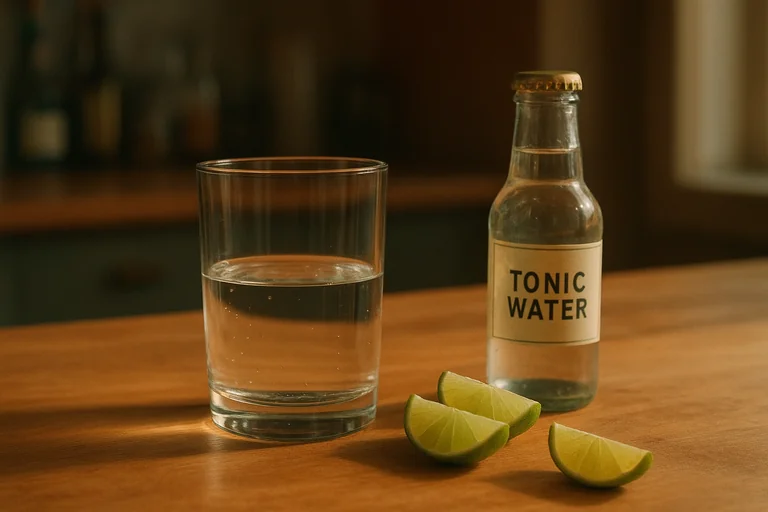A 2 minute assessment to get a personalized mental health or alcohol recovery plan.
Your kidneys filter blood and maintain body balance - excessive drinking can disrupt this vital function and cause lasting kidney damage.
What You'll Discover:
- How alcohol affects kidney function.
- The link between alcohol and kidney disease.
- Definitions of heavy and binge drinking.
- How much alcohol is safe for kidney health.
- Steps to protect your kidneys from alcohol damage.
- When to seek medical advice about kidney health.
When we think about alcohol's effects on the body, we often think of the liver. While the liver does bear the primary burden of metabolizing alcohol, your kidneys also play a crucial role in processing alcohol. Excessive drinking can have a significant and lasting impact on kidney health.
Understanding this connection is the first step toward making informed choices about your alcohol consumption.
How Alcohol Affects Kidney Function
Your kidneys filter about 120 to 150 quarts of blood every day to produce about 1 to 2 quarts of urine, composed of wastes and extra fluid. This process is vital for maintaining a stable balance of body chemicals. When you drink alcohol, you introduce a substance that can disrupt this delicate balance.
According to the National Kidney Foundation, alcohol can cause changes in kidney function and make them less able to filter your blood. Here's how alcohol harms your kidneys:
Dehydration - Alcohol is a diuretic - it causes you to urinate more frequently. This can lead to dehydration, which affects the normal function of your cells and organs, including your kidneys. When kidneys work in a dehydrated state, they're less able to perform their vital functions.
High Blood Pressure - Excessive alcohol consumption can lead to high blood pressure, which is a leading cause of kidney disease. Over time, high blood pressure damages the blood vessels in the kidneys, impairing their ability to filter waste from the blood.
Liver Disease - Chronic heavy drinking is a major cause of liver disease. When the liver is damaged, it's less able to regulate blood flow to the kidneys. This can lead to hepatorenal syndrome, where the kidneys begin to fail due to severe liver disease.
Structural Damage - Scientific research shows that alcohol can cause direct damage to the structure of the kidneys. A study published in PMC found that both acute and chronic alcohol consumption can compromise kidney function, leading to changes in kidney structure and impairing their ability to regulate fluid and electrolytes. Animal studies have shown that chronic alcohol consumption can lead to kidney swelling and enlarged kidney cells.
While a single drink is unlikely to cause lasting harm, the cumulative effects of alcohol on kidneys over time can lead to serious and irreversible damage.
How Much Alcohol Is Too Much?
Understanding the definition of a "standard drink" is the first step in gauging your consumption. According to the National Kidney Foundation, one standard drink equals:
- 12 ounces of beer
- 5 ounces of wine
- 1.5 ounces of hard liquor (vodka, whiskey, or gin)
While moderate drinking is generally considered safe for most healthy adults, it's crucial to understand what constitutes "heavy" and "binge" drinking, as these patterns pose the greatest risk to kidney health.
Heavy Drinking - For women, heavy drinking is more than three drinks in a day or more than seven drinks per week. For men, it's more than four drinks in a day or more than 14 drinks per week. The National Kidney Foundation warns that regular heavy drinking has been found to double the risk for kidney disease.
Binge Drinking - Binge drinking is a pattern of drinking that brings a person's blood alcohol concentration (BAC) to 0.08 g/dl or above. This typically occurs after four or more drinks for women, and five or more drinks for men, in about two hours. Binge drinking can cause a sudden drop in kidney function known as "acute kidney injury," which can lead to lasting kidney damage.
Be honest with yourself about your drinking habits. If you fall into the category of a heavy or binge drinker, it's crucial to take steps to reduce your consumption. This is where mindful drinking can be a powerful tool for change.
Steps to Protect Your Kidneys
You can take proactive steps to protect your kidneys from the harmful effects of alcohol. Here are key strategies:
Drink in Moderation - If you choose to drink, do so in moderation. The general guideline is no more than one drink per day for women and people over 65, and no more than two drinks per day for men.
Stay Hydrated - When you drink alcohol, drink plenty of water to stay hydrated. This helps your kidneys function properly and flush out harmful substances from your body.
Avoid Binge Drinking - Binge drinking is particularly harmful to your kidneys. If you're going to drink, do so slowly and spread your drinks out over time.
Know Your Risk Factors - If you have high blood pressure, diabetes, or a family history of kidney disease, you're at higher risk for developing kidney problems. It's especially important to be mindful of your alcohol consumption.
Talk to Your Doctor - If you have any concerns about your alcohol consumption or kidney health, don't hesitate to talk to your doctor. They can provide personalized advice and help you create a plan to protect your health. It's important to understand if you might have an alcohol use disorder.
Protecting Your Kidney Health
Your kidneys are vital organs that play a crucial role in your overall health. While moderate alcohol consumption is generally safe for most healthy adults, it's important to be aware of the potential risks of excessive drinking. By understanding the connection between alcohol and kidney health, you can make informed choices that protect your kidneys and support a long, healthy life.
If you're concerned about your drinking habits and their impact on your health, know that you're not alone. There are many resources available to help you, and taking the first step is a sign of strength.
Ready to learn more about your drinking patterns? Take the Alcohol Use Assessment to explore your options.
References
[1] National Kidney Foundation. "Alcohol and Your Kidneys" https://www.kidney.org/kidney-topics/alcohol-and-your-kidneys
[2] PMC. "Alcohol's Impact on Kidney Function" https://pmc.ncbi.nlm.nih.gov/articles/PMC6826793/




